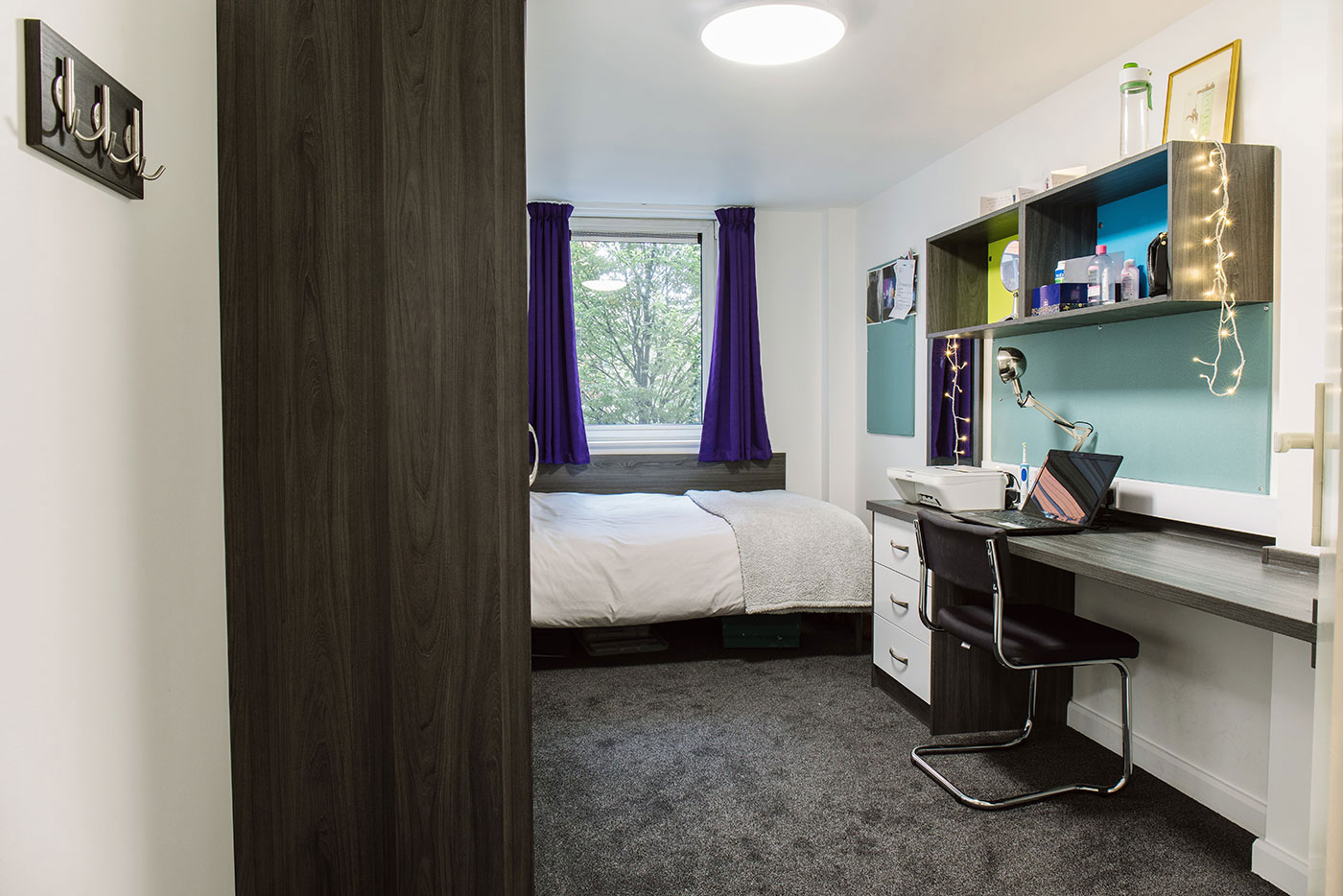When considering products and materials to facilitate quality design within education facilities, elements such as durability, comfort and performance reach the top of the specification list. Considering a flooring solution which is engineered to meet the demands of the education sector, can bring many benefits to the learning and living facilities and ticks many of the student's and staff's requests for improved conditions.
Acoustics

Carpet has a unique ability to reduce sound impact levels and research suggests that it is 10 times more efficient in reducing noise compared to other flooring options. Background noise from inside and outside a building negatively affects learning, especially for children who require optimal conditions for hearing, comprehension, rest and relaxation.
Aesthetics
Carpets can be a useful way of creating flexible learning and living spaces, making it comfortable for students and staff to sit, stand and lie down on the floor. In addition, for students who may be living with sensory impairments or a neurodiverse condition the use of contrast and colour, tone and texture on the wall and floor surfaces for identification and location are important for facilitating orientation. Carpet is not only perceived as being warmer and providing more comfort, but it also offers a glare-free surface which helps to reduce reflection and eye strain.
Energy Saving
Carpets act as thermal insulators and improve energy consumption due to the low level of heat conduction. It is estimated that energy savings of between 8-13% can be achieved with the installation of carpet and as a consequence, a reduction in energy cost can be experienced. In fact, a study by Rees reported the case of a school in the USA, where carpeting reduced heating fuel consumption by 5-13% compared to a very similar uncarpeted school.
Indoor Air Quality

According to The World Health Organisation (WHO) one of the biggest risk factors for an asthma attack is the inhalation of substances and particles that may provoke the airways. There are many studies which conclude that carpets can improve indoor air quality by capturing the allergens in their fibres prior to removal, therefore, preventing them from circulating back into the air. The allergens should then be removed through regular vacuuming. There are other studies which suggest that walking on hard surfaces disturbs more particles causing them to become airborne into the breathing zone. In comparison on the carpet, more of these particles remain in the carpet fibres, resulting in less dust in the breathing zone.
Cost Saving
A specially selected carpet which is installed and maintained properly lasts up to 10 years, if not longer. However, a proper life cycle analysis is key to proving that carpet is more cost-effective than other hard flooring solutions on the market. A 2002 report, “Life cycle cost analysis for floor coverings in school facilities” prepared by the Institute of Inspection, Cleaning and Restoration Certification found that carpet could be 65% less expensive to maintain than hard surface flooring. In the study, buying and installing the hard surface flooring was less expensive than carpet, but when labour, supplies and equipment costs were calculated over the 22-year life cycle, carpet proved to be more cost-effective. 22 years was the life expectancy of the hard surface flooring so the cost of replacing the carpet after 11 years was factored into the analysis. The study also found that hard surface floors require two and a half times more cleaning than carpet and that hard surface cleaning supplies are about seven times more expensive than supplies for carpeted floors.
Income Generator
When the students return home for the holidays the opportunity to let boarding facilities means that the standard of accommodation has to meet not only the needs of students but those who choose to visit and use the facilities during the holidays.
Take a browse around our Education Carpets to see the variety of designs and finishes available.
* The Sustainable Campus Report 2020 prepared by the Higher Education Design Quality Forum
